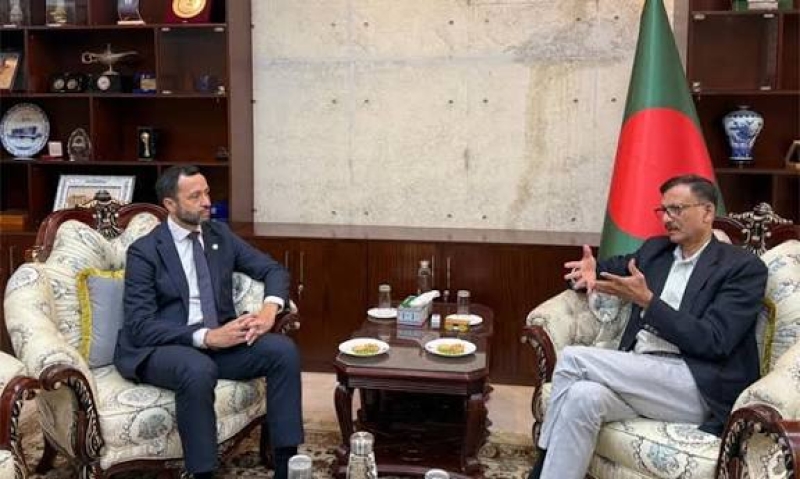- Dhaka’s air recorded unhealthy on Friday morning |
- Teesta activists announce ‘Silent Rangpur’ campaign in 5 districts |
- Ceasefire Offers Lifeline, but Gaza Hospitals in Ruins |
- Christensen calls next election most consequential in decades |
- OIC Condemns Knesset’s Annexation Law, Supports ICJ Advisory Opinion |
ILO to Boost Decent Jobs, Investment Climate in Bangladesh

Max Tuñón, the newly-appointed Country Director of the International Labour Organization (ILO) in Bangladesh, has reaffirmed the ILO’s commitment to advancing decent work, social justice, and sustainable investment in the country.
Speaking after presenting his credentials to Foreign Affairs Adviser Md Touhid Hossain, Tuñón emphasized the importance of improving working conditions to attract greater investment.
“Our collective efforts will not only ensure more decent jobs for the workforce but also strengthen Bangladesh’s appeal to investors,” he said, according to an ILO press release.
Highlighting the entry of two million young people into the labour market annually, Tuñón stressed the urgency of creating inclusive economic growth that generates quality employment.
The ILO continues to support the government and its tripartite partners in revising the Bangladesh Labour Act and strengthening enforcement of labour laws, occupational safety, and workers’ rights.
It is also focused on building employability through skills training, entrepreneurship promotion, and a business-friendly environment.
Before arriving in Dhaka, Tuñón led the ILO Office in Doha, where he supported labour reforms in Qatar. He has also worked in ILO offices in Bangkok, New Delhi, and Beijing, with expertise in wages, labour inspection, social protection, and global labour standards.
The ILO Office in Bangladesh is one of the largest globally and supports the government’s goals of expanding decent employment and social protection, particularly for vulnerable populations.
This support is delivered through the Decent Work Country Programmes (DWCP), developed in partnership with the government, employers, and workers to promote fair, safe, and inclusive labour practices.

